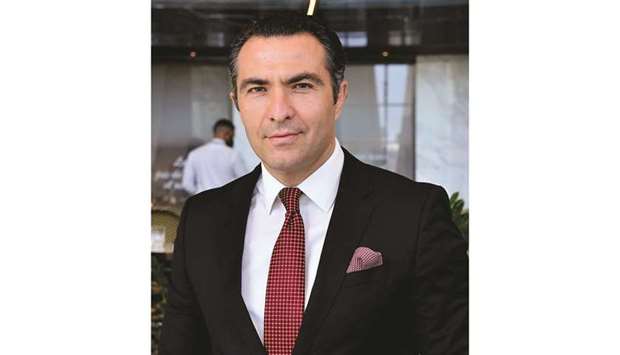Qatar’s luxury hospitality industry witnessed a huge local demand amid the Covid-19 pandemic as most guests sought curated experiences and unique offerings, Ritz-Carlton, Doha general manager Carlo Javakhia has said.
“In luxury hospitality, the negative impact was only for the few months when travel wasn’t allowed for international markets. However, the local market demand was very strong, very high, this allowed us to run on weekends (and) we were sold out,” he told a recent media briefing at the hotel’s Sel & Miel restaurant to mark the hotel’s 20th anniversary on October 27.
The global health crisis, Javakhia said, created a positive impact “in the way people became more conscious when it comes to health and safety measures”.
“They (guests) are now more brand conscious than they would be in the past because they trust certain brands and they trust certain companies and they feel more secured, safer,” he stressed, adding that people are willing to pay higher rates for luxury than in the past since not every hotel could offer such product.
A Katara Hospitality-owned property, Ritz-Carlton, Doha completed the renovation of its Grand Amiri suites in 2020. The hotel has 374 rooms, including 42 Club-level rooms and 61 suites (four of them named as Grand Amiri suites), of the luxury hotel fuse contemporary styling with classic Arabic and European design.
Three distinctive restaurants compile the hotel’s culinary journey; The French restaurant Sel & Miel, the American Steakhouse STK Doha, and the Pan Asian restaurant B-Lounge.
“The products are launched in such a way that they can cater to the international traveller and can meet the local client as well,” Javakhia said.
He pointed out that Covid-19 affected more the middle class and entry-level products than the luxury as demand grew for “more personalised, more private experiences than it was in the past”.
Javakhia said the hotel also brought curated menus from the lounge to guests’ suites as people became extra conscious to dine at restaurants.
He noted that the five-star hotel – featuring more than 2,000 sq m of meeting space – also saw a “double-digit increase” for leisure business not only from the local but also from the international market.
Besides launching various offerings from the best brands across the globe, the general manager added that Ritz-Carlton, Doha’s chefs also introduced new menu items to cater to different segments.
“Then we launched the beach which was one of the main components for the leisure market,” he added.
“In luxury hospitality, the negative impact was only for the few months when travel wasn’t allowed for international markets. However, the local market demand was very strong, very high, this allowed us to run on weekends (and) we were sold out,” he told a recent media briefing at the hotel’s Sel & Miel restaurant to mark the hotel’s 20th anniversary on October 27.
The global health crisis, Javakhia said, created a positive impact “in the way people became more conscious when it comes to health and safety measures”.
“They (guests) are now more brand conscious than they would be in the past because they trust certain brands and they trust certain companies and they feel more secured, safer,” he stressed, adding that people are willing to pay higher rates for luxury than in the past since not every hotel could offer such product.
A Katara Hospitality-owned property, Ritz-Carlton, Doha completed the renovation of its Grand Amiri suites in 2020. The hotel has 374 rooms, including 42 Club-level rooms and 61 suites (four of them named as Grand Amiri suites), of the luxury hotel fuse contemporary styling with classic Arabic and European design.
Three distinctive restaurants compile the hotel’s culinary journey; The French restaurant Sel & Miel, the American Steakhouse STK Doha, and the Pan Asian restaurant B-Lounge.
“The products are launched in such a way that they can cater to the international traveller and can meet the local client as well,” Javakhia said.
He pointed out that Covid-19 affected more the middle class and entry-level products than the luxury as demand grew for “more personalised, more private experiences than it was in the past”.
Javakhia said the hotel also brought curated menus from the lounge to guests’ suites as people became extra conscious to dine at restaurants.
He noted that the five-star hotel – featuring more than 2,000 sq m of meeting space – also saw a “double-digit increase” for leisure business not only from the local but also from the international market.
Besides launching various offerings from the best brands across the globe, the general manager added that Ritz-Carlton, Doha’s chefs also introduced new menu items to cater to different segments.
“Then we launched the beach which was one of the main components for the leisure market,” he added.


